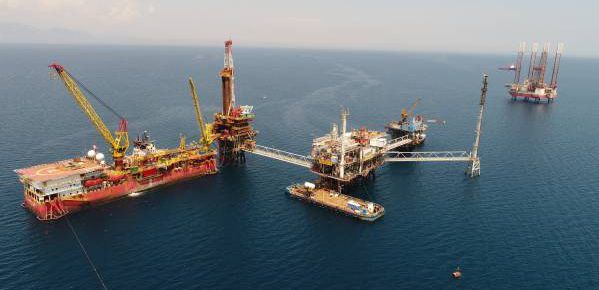Talks between Energean Oil & Gas and officials at the energy and economy ministries for a solution to rescue offshore Prinos, Greece’s only producing field in the north, are making progress, sources have informed.
Heightened Turkish provocations in the Aegean Sea over the past few days – the neighboring country sent a survey vessel into Greece’s EEZ – and greater US presence in the wider southeast Mediterranean region, are two developments that have injected further urgency into the Prinos field rescue talks.
The east Mediterranean is at the core of geopolitical developments that promise to create new political and energy sector conditions.
US oil corporation Chevron, America’s second-biggest energy group, has joined fellow American upstream giant ExxonMobil in the east Mediterranean with a five billion-dollar acquisition of Noble Energy.
This takeover by the California-based buyer adds to the Chevron portfolio the gigantic Leviathan gas field in Israel’s EEZ, as well as the Aphrodite gas field, situated within the Cypriot EEZ and estimated to hold 4.5 trillion cubic feet.
It also offers Chevron prospective roles in the East Med pipeline, to supply Europe via the Leviathan field, and Egypt’s LNG infrastructure, all elevating the petroleum group into a dominant regional player.
Israel and Cyprus recently ratified the East Med agreement, as has Greece, while Italy appears to be examining the prospect.
In another regional development, the Total-ENI-ELPE consortium is preparing to conduct seismic surveys at licenses south and southwest of Crete, and an environmental study southeast of Crete has been approved by Greek authorities. Also, oil majors with interests in Cyprus’ EEZ have planned a series of drilling operations for 2021.
Meanwhile, Turkey, trespassing into both Greek and Cypriot EEZ waters, consistently cites a memorandum recently signed with Libya as support for its actions, as well as its refusal to sign the UN’s International Law of the Sea treaty, strongly disagreeing with an article that gives EEZ and continental shelf rights to island areas.
Greek government officials are well aware that closure of the Prinos field amid such precarious conditions would lead to major consequences, not just economic and social, as would be the case under normal conditions, but also geopolitical.





